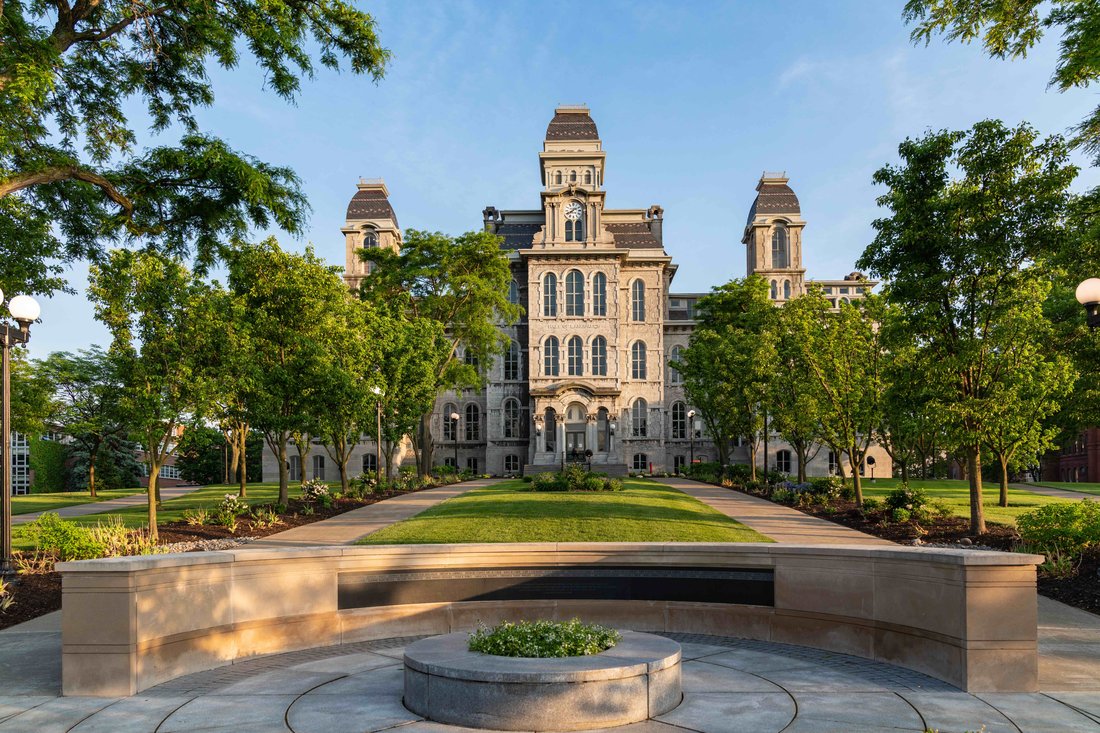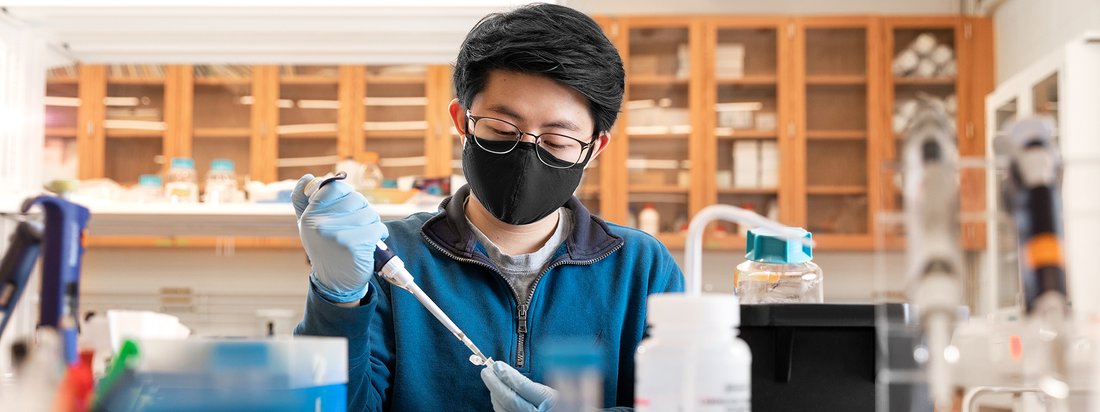
College of Arts and Sciences
Curriculum
The applied mathematics B.A. curriculum is best suited for students who seek advanced mathematical training and a flexible curriculum that allows for second majors in other fields.
- Demonstrate facility with the techniques of single and multivariable calculus and linear algebra.
- Effectively communicate mathematical ideas, orally and in writing.
- Make symbolic calculations by hand and numerical calculations using MATLAB or other appropriate software.
- Reproduce essential assumptions, definitions, examples and statements of important theorems.
- Describe the logical structure of the standard proof formats, reproduce the underlying ideas of the proofs of basic theorems and create simple original proofs.
- Solve problems using advanced undergraduate methods from one of the following areas: differential and linear equations, analysis, probability and statistics.
The B.A. and B.S. in applied mathematics both provide strong mathematical training and coursework while allowing students the flexibility to pursue additional majors. The B.A. focuses more heavily on computations and algorithms, whereas the B.S. includes a focus on proof-writing. Thus, the B.A. is well suited for students who will pursue careers that intersect with mathematics, while the B.S. is well suited for students who will seek further education in mathematics beyond the undergraduate level and/or pursue careers in science, technology and engineering that require this advanced training.
- Advanced Calculus
- Partial Differential Equations and Fourier Series
- Numerical Methods with Programming
- Fourier Series, Transforms and Wavelets
- Applied Linear Algebra
Extracurricular Opportunities
Pi Mu Epsilon
Pi Mu Epsilon is the national mathematics honorary society. Founded in 1914 at Syracuse University, PME currently has over 350 chapters at colleges and universities throughout the United States. The purpose of the society is to promote mathematical activities among students.
Directed Reading Program
The Directed Reading Program pairs undergraduate students with graduate mentors for a semester-long reading project.
Research Areas
In the Department of Mathematics, you will learn from and have the opportunity to conduct research alongside faculty with expertise across a range of research areas. Current research groups focus on algebra, analysis, applied mathematics, combinatorics, geometry, topology, mathematics education, probability and statistics.
Learn more about this program

